MASTER OF HIS DOMAIN
‘Seinfeld,’ ‘Curb’ and ‘Borat’ All Led to ‘Larry Charles’ Dangerous World of Comedy’
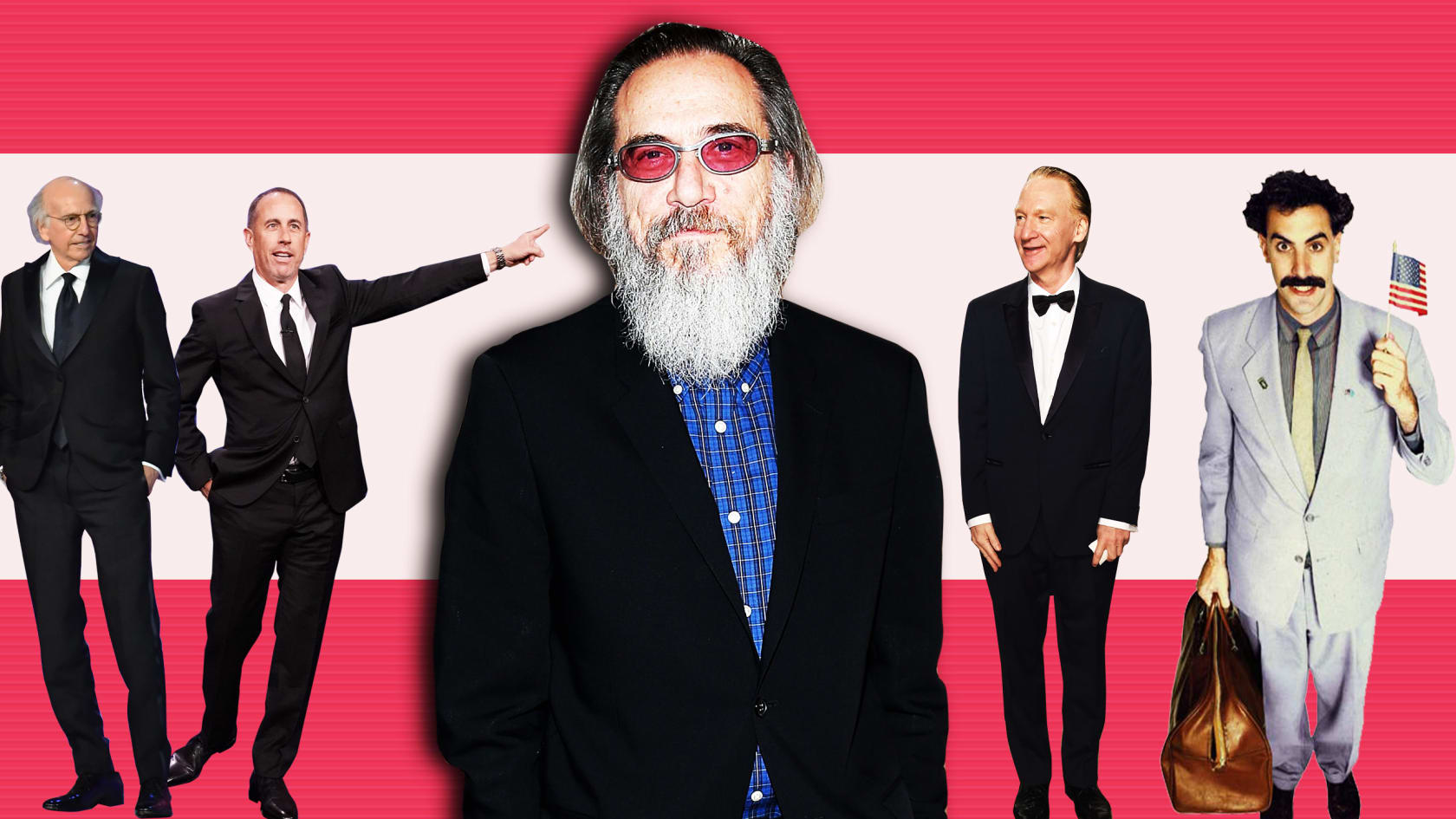
The legendary Larry Charles shares the comedy wisdom he’s acquired from working with Larry David, Sacha Baron Cohen, Bill Maher and more.
HOLLYWOOD, California—Larry Charles calls his new Netflix show the “culmination” of his life’s work.
In the four-episode documentary series, titled Larry Charles’ Dangerous World of Comedy, the 62-year-old writer and director goes on a global mission to figure out what makes people laugh in war-torn countries such as Iraq and Somalia.
“Most of my projects are very hard to get off the ground because they’re very radical,” Charles tells me as we wait for our cups of coffee on a cold but sunny February afternoon in Los Angeles. “But I’m also a very tenacious person and I don’t like to compromise. And I’ve had enough success that I can rope people in.”
It’s too crowded in the laptop-laden coffee shop, so we venture out onto the street to find a quiet place to sit and talk. Seated on a bus stop bench, sipping his breve latte on a busy stretch of Sunset Boulevard, Charles prompts a decent number of double takes—not necessarily because anyone recognizes him. No one approaches for an autograph or selfie, but his dark suit, long gray beard and aviator sunglasses make him seem like he must be somebody. And he most certainly is.
Charles’ big break came about 30 years ago when his friend Larry David brought him on board to write for Seinfeld in its second season. They had met on the short-lived but influential sketch series Fridays in the early 1980s. “We became friends instantly, had an immediate connection,” David tells The Daily Beast by email. “Same Brooklyn sensibilities. It was like being with an old friend from the schoolyard.”
Both Larrys spent the better part of that decade struggling to make an impact on shows like Saturday Night Live, where David famously worked for a whole season and got just one sketch on the air, and The Arsenio Hall Show, where Charles didn’t get a single joke in the host’s monologue for six months.
Seinfeld was not only a game-changer for David, who co-created the revolutionary sitcom with Jerry Seinfeld, but also transformed Charles’ life and career.
“Larry David’s like my older brother, he’s a mentor,” Charles says. “He’s probably the most important person in my adult life.”
David gave Charles the first few Seinfeld scripts before the show’s 1989 premiere and he immediately thought they were the “funniest things” he’d ever read. “I could not believe how great they were,” Charles says, explaining that David wanted to hire him to be a writer for the show’s five-episode first season but Castle Rock, the studio producing the show, wouldn’t let him.
“He had never done a sitcom before and I had never done a sitcom before and they didn’t feel comfortable with us working together,” Charles explains. It wasn’t until NBC picked up the show for season two that Charles was officially hired to join the writing staff, going on to pen classic episodes like “The Library,” “The Subway” and “The Fix-Up,” for which he won his first Emmy.
“Besides being a brilliant writer, I needed an ally and a friend,” David says. “Someone who could not only write great scripts—and quickly—but someone I could count on for support and advice. He loved to push boundaries and in prime-time television there was—if I may use this term—a concrete wall. Larry was constantly taking a sledgehammer to that wall or just pole-vaulting over it.”
Charles ultimately left the show ahead of its sixth season after the network rejected some of his more controversial ideas for episodes, including one in which George makes a racist comment about how he’s never seen a black person eat a salad and another that had the logline: “Elaine decides to buy a gun.”
He now blames himself for trying to “push the envelope” too far without “executing the lightness that needed to be juxtaposed with the darkness to make it work,” citing as a counter-example David’s all-time great episode “The Contest” that managed to get no notes from the network brass despite centering on masturbation.
From there, after stints writing on shows like Mad About You and a short-lived animated series based on Scott Adams’ Dilbert cartoons, Charles ended up directing Larry David in a total of 19 episodes over the course of Curb Your Enthusiasm’s nine seasons of HBO. Some themes from his 2017 episode “Thank You for Your Service”—in which the fictional David neglects to thank a young veteran for his service—pop up in the episode of Dangerous World of Comedydedicated to comedy performed by vets suffering from war injuries and PTSD.
“Once he got into directing, it was a foregone conclusion that he’d be working on Curb,” David tells me. “It was a seamless transition. He’s a fearless writer and director, open to any and all ideas. The more outrageous, the better.”
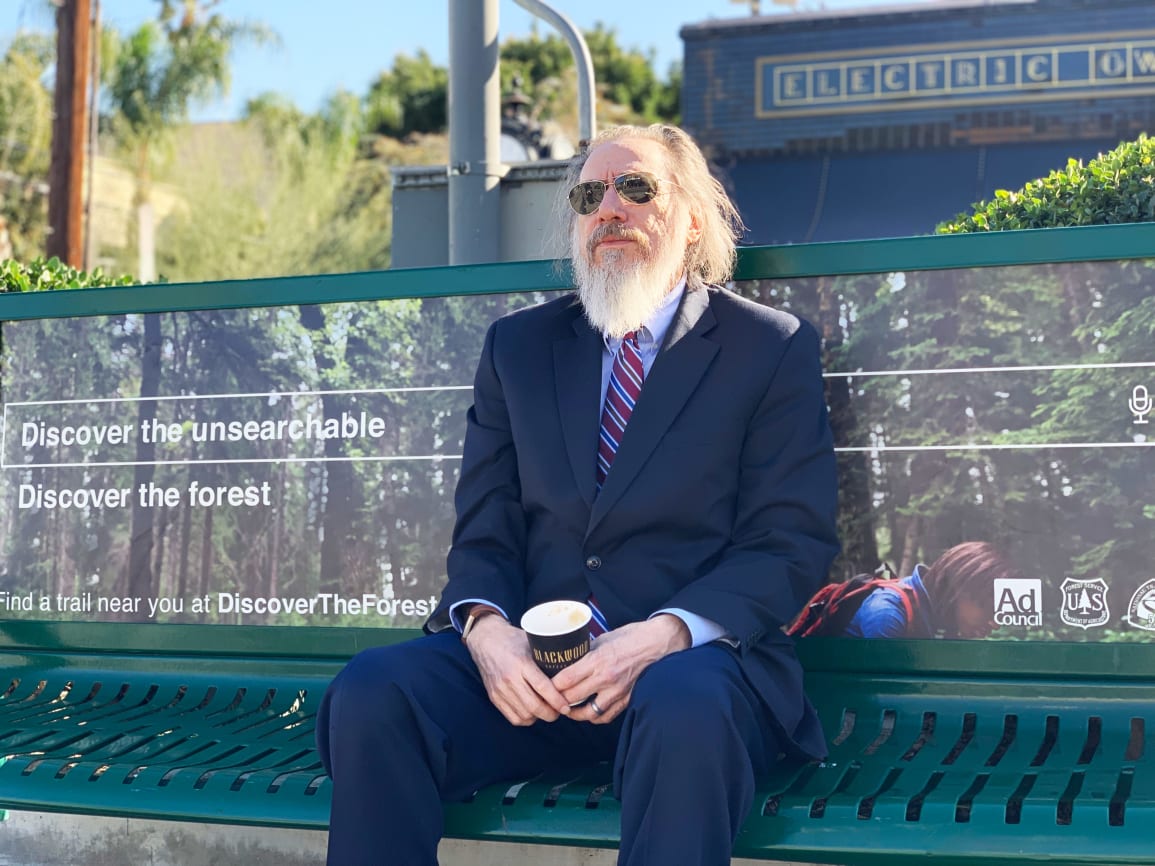
As “outrageous” as some of his work on Curb was, Charles pushed things even further when he directed Sacha Baron Cohen in his breakout feature Borat as well as the follow-up Brüno and later The Dictator. He also helmed Bill Maher’s 2008 documentary Religulous, which serves as the closest analogue to his latest project with Netflix.
After making his most recent film, 2016’s Army of One, an elaborate action movie starring Nicolas Cage as a samurai sword-wielding construction worker on a messianic mission to kill Osama bin Laden, Charles decided he’d had enough.
“I’ve reached the point in my life where I couldn’t make movies anymore,” he says. “I don’t feel the medium is favorable to the kind of thing that I’m doing.” He couldn’t handle the “big artifice, this gigantic army” of a film crew. “I’m much more of a guerrilla army kind of person,” he says. “And I had no control over the end result and was profoundly unhappy with it. And I did not want to do that again.”
RELATED IN ENTERTAINMENT
For years, Charles lived with his now ex-wife and daughter right around the corner from where we’re sitting, but now he and his new girlfriend reside in Malibu. “I had no interest in living in Malibu, it had never really occurred to me,” he says. Though their house survived, they did have to evacuate during the recent wildfires, an experience that he found less “scary” because of everything he had seen while filming his new show. “I kept remembering all of the refugees I’d seen on the road,” he says. “And I’m like, I’m going to the Loews Beach Hotel. Being a Malibu refugee is not really the same thing.”
“I’m always looking for perspective,” he says. “Those experiences absolutely gave me new perspectives that I was not even seeking. I had certain assumptions going in and they were constantly being torn asunder.”
Charles went into his new show looking to make something that could have a real impact on viewers. “I didn’t want to make anything frivolous, I didn’t want to make anything meaningless,” he says. “I wanted to find something that would have some significance, say something about what we’re going through here. I was unhappy about Trump and the isolationism that was going on.”
Charles’ current Malibu life is about as far removed as he could get from the Brooklyn apartment where he grew up. It was part of a housing project between Brighton Beach and Coney Island called Trump Village.
“It was his father’s rip-off of New York City housing rules,” Charles says of the president’s father Fred Trump. “It was a working-class project and it was very Soviet. If you look at Soviet housing and Trump Village, it was the same basic model. Seven buildings, 23 stories each, 20 apartments on a floor and everybody moved in at the same time.”
He recalls seeing a young Donald Trump coming around with his father once in a while for the opening of a Little League field or some other occasion. “I would see him there and he still had the weird haircut, even as a teenager,” Charles, who always viewed Trump as a “buffoonish, larger-than-life joke character,” he says. “From Trump Village to the presidency, that is a disconnect that I don’t think I’ll ever reconcile.”
Charles spent much of the first decade of this century traveling around the world, making Religulous and the Baron Cohen films, and everywhere he went he would meet comedians from different cultures. “Regardless of the country, there was a comedy culture there,” he says. “And I thought, what do they do when I leave?” He started Googling things like “comedy in Somalia” and venturing down online rabbit holes where he would see people finding humor in the most troubled corners of the globe. He decided he was “uniquely qualified” to “observe, record and share” their stories.
Charles’ career follows a distinct and unmistakable trajectory from fiction to non-fiction storytelling. After starting out in the sitcom world of Seinfeld and Mad About You, he moved on to Curb Your Enthusiasm, “stripping away the artifice,” in his words, by embracing a more realistic, improvisational style. Then came the work of Baron Cohen, who blurs the lines even further by interacting with real people in character. With Religulous and now Dangerous World of Comedy, Charles has fully embraced the documentary form.
“As I have evolved, the fiction process—the writing of the scripts, the notes, the second-guessing, the too many cooks syndrome—all these things took away all the fulfillment from the experience,” he says. “I was willing to go through all of that if the end result was great. But the last couple of times, I felt the end result was not great.”
“I’m too old to go through that again,” Charles adds. “If I’m going to fail, I want to fail on my terms.” And if he’s “going to have any kind of success,” he says it has to be on his own.
While Charles has made cameos in previous projects—his credited Seinfeld roles include “Unresponsive Man,” “Stinky Man” and “Man on Raft #2”—the Netflix series is the most time he’s ever spent in front of the camera.
“For years, I couldn’t bring myself to say I wanted to be a director,” Charles says. “Because I was embarrassed to say something like that.” In the same way, he had to convince himself to take on the Anthony Bourdain-esque role as host ofDangerous World of Comedy. “I know about this world, I have an authenticity and a credibility in this world,” he told himself. “I thought about it like, I’ll be the Werner Herzog of comedy. That’s what I was going for really.” He even asked the mysterious German auteur to appear in the series, but Herzog declined.
Over the show’s four hour-long episodes, Charles travels to Iraq, Liberia, Somalia and anywhere else on Earth that the State Department would let him. He attempted to get into Syria but was denied. “If I was beheaded, I’d be in violation of my contract with Netflix,” he jokes in one episode before sitting down with a former ISIS militant.
“There were numerous times where I thought this could really go south quickly,” he tells me, especially in Somalia, where he says there was a “different level of tension” from the rest of the countries he visited due to the near-constant threat of violence. “I told my crew, we have to be lucky for three days,” he says. “We can do all the security in the world, we’ve got to just be lucky that we’re not standing there when a bomb goes off.”
I know about this world. I have an authenticity and a credibility in this world. I thought about it like, I’ll be the Werner Herzog of comedy.
Or there was the time he was trying to get into Israel from Palestine and the border officers made him drink his Diet Coke in front them to prove it wasn’t poison or explosives. Then, one of his fixers told the guards that Charles used to work on Seinfeld and that was all they needed to hear. “I got through all customs in Israel after that,” he says, laughing. Walking through street markets in Oman, Jordan, he was shocked to find the same four items at nearly every stall: Bootleg DVDs of Seinfeld, Curb, Borat and a well-worn copy of Mein Kampf.
“If I’m going to call it dangerous, it has to be dangerous,” Charles says. “And I have to put myself on the line. I felt like that credibility was crucial to the success of the show.”
Charles was familiar with a type of “danger” from his guerrilla-style filmmaking on Borat and Brüno. But with Sacha Baron Cohen, he says the difference was they were “instigating” the danger. “I know how to run away, I know how to talk my way out of stuff,” he says. “This was different. This was entering war zones and politically tempestuous environments and possibly being a victim of circumstance.”
As Charles demonstrates in the new show, the type of confrontational comedy he pioneered with Baron Cohen has now been co-opted by alt-right “comedians” who see making liberals angry and uncomfortable as the ultimate form of humor. He says he’s gotten used to the idea that some people have “interpreted Boratincorrectly.” While a large portion of that film’s audience understood the satire, there were others “who just thought it was really funny to make fun of Jews.”
In the same way Michael Douglas’ icon Gordon Gekko inspired legions of Wall Street bros to believe greed really is “good,” Charles and Baron Cohen—two Jews from opposite shores of the Atlantic—may have actually encouraged right-wing trolls to want to “throw the Jew down the well.”
“It’s a very testosterone-driven humor in a way,” Charles says. “It’s confrontational, it’s alpha, it’s potentially violent at all times.” That’s why he thinks it appeals to “those alt-right guys” so much. “It’s funny to them just to see liberals suffer. That’s enough to make it comedy to them,” he says. “The fact that somebody’s pissed off, that’s what’s funny. And that was the raison d’etre of Borat.”
In 2010, just four years after its release, The Guardian named Borat! Cultural Learnings of America for Make Benefit Glorious Nation of Kazakhstan—its full, glorious title—the second best comedy film of all time (behind Woody Allen’s Annie Hall). “We wanted to make the funniest movie ever made,” Charles readily admits. And while he remains incredibly proud of what they achieved in the movie, he does think he would approach it differently today.
“If we were doing the movie today, we wouldn’t do a lot of the stuff that’s in the movie then,” he says. “But we would be trying to find equally provocative subjects that are relevant to today. I see that as a movie of its time to some degree.”
Charles was notably not involved in Baron Cohen’s surprise return to this type of confrontational comedy in 2018 on the Showtime series Who Is America? For that reason, he’s a bit hesitant to criticize the show in any way, but does say that he thinks the half-dozen new characters his former collaborator was “forced” to invent so quickly did not seem as “ingrained” as those he lived with for years like Ali G, Borat and Brüno.
“They weren’t as fully developed as a character like Borat, who is a three-dimensional character,” Charles says, noting that when they were filming that movie, Baron Cohen would have to be wearing specific underwear that viewers—at least for most scenes—would never see. “He was very immersed in Borat, and he had to be, because he would be Borat all day long.”
When I bring up some of the backlash the show received from its mostly right-wing detractors, Charles says, “I never see Sacha as someone who’s duping people. I think he is using his characters to expose the hypocrisy of our society. I love that he exposes that hypocrisy. That’s what I try to do and that’s what we tried to do together.”
“But I think the challenge today with that kind of humor is that we already know all these people are assholes,” he continues. “So he was kind of only able to confirm what we already know,” for instance, about someone like Dick Cheney, who he interviewed in the series in character as Israeli Col. Erran Morad. When Baron Cohen was first starting out, he thinks that was more of a “revelation” for viewers.
As one of Baron Cohen’s closest collaborators over the years, I wonder if Charles has any insight into why he would have left his highly anticipated interview with Sarah Palin on the cutting room floor. In a recent interview, Baron Cohen said that despite “a lot of pressure” on him from Showtime, he ultimately decided it “just wasn’t funny enough” to include in the show.
Charles laughs knowingly as I bring this up, explaining he was not at all surprised to hear Baron Cohen say that. “The first cut of Borat is six hours long,” he tells me. “And I’m telling you right now that you would love it.”
“We did scenes for Borat that I thought were brilliant,” he continues. “They weren’t the funniest scenes necessarily, but they were shocking, freaked-out scenes. And if they didn’t get that laugh quotient, he would not want to use it. And a lot of those scenes fell by the wayside.”
If we were doing [‘Borat’] today, we wouldn’t do a lot of the stuff that’s in the movie then.
Both Baron Cohen and Larry David are “brutal and ruthless with their own material,” Charles adds, noting that they would also shoot “a lot of funny stuff” for Curb Your Enthusiasm that wouldn’t make it into the final cut.
“The first cuts are always twice as long,” he says. “And then we go through this painstaking process of losing all this gold. I’m the person in the editing room going, ‘No, no, we’ve got to keep it!’ But I always lose those arguments and they’re right. And they are cold-hearted about it. They don’t want to put out anything that they don’t feel is completely as great as it could possibly be.”
As different as a lot of his projects can feel, Charles stresses that “one thing they do have in common” is that he is always putting the comedy first. “You cannot underestimate the funny quotient for making these thoughts, these themes, these ideas, palatable,” he says. “It has to be funny.”
With that in mind, one seeming outlier on his resume is the time he spent executive producing HBO’s Entourage. But despite the major backlash that show has received since it went off the air a decade ago—exacerbated by the 2015 film version disaster—Charles stands by it.
“I only worked on the first two seasons,” he stresses, taking credit for making Jeremy Piven’s agent character—inspired by the real-life Ari Emanuel, who repped both Charles and Larry David at the time—a more central part of the show than HBO originally wanted him to be. “They were wrong about that, obviously.”
And without Entourage, he would have never been introduced to Kanye West.
“Kanye had put it out there to his manager that he wanted to do a TV show,” Charles recounts. The year was 2008 and through a convoluted chain of connections that involved Entourage producer Steve Levinson West’s longtime manager Scooter Braun, he ended up getting the offer to direct a pilot starring the rapper. He never thought anything would actually come of it, but was excited by the prospect.
“It’s the same thing I did with Bob Dylan,” he says of the music icon who ended up starring in his directorial debut Masked and Anonymous. “I figured, I’ll meet him once, I can tell my friends I met Bob Dylan and I thought it would be the same thing with Kanye.” Infamously, the first thing West told Charles was, “I’m the black Larry David.”
West, who at that point was fresh off of his breakout albums The College Dropoutand Late Registration, regaled Charles with stories about “fucking up, stepping in shit, putting his foot in his mouth and having to apologize constantly for his actions.” That made Charles think there was a show there that would be similar in style to Curb but set in a completely different world.
They wrote a very loose, “Curb-esque” script, cast up-and-coming comics like J.B. Smoove and Wyatt Cenac as members of Kanye’s entourage as well as sitcom veteran Kym Whitley as West’s mother Donda, and shot a pilot. “It was really good,” Charles says. “Very unique to itself, had its own voice, but HBO just did not go for it and I never really found out why.” Fans finally got to see the unaired pilot five years later when Cenac illegally screened it at his live comedy show in Brooklyn.
Imagining an alternative universe in which the show became an HBO hit, Charles says, “First of all, there would be no Kardashians, because they would have been characters on the Kanye show rather than him being a supporting character on the Kardashians.”
“The world would be very, very different, let’s face it,” he adds. “He probably wouldn’t be supporting Trump right now.” If West came back to him more than a decade later and tried to get the show going again, Charles says he would “certainly take it seriously.”
As for what else might be next for him, Charles says he genuinely doesn’t know. Now that Dangerous World of Comedy has premiered, he’s eager to continue his steady trajectory towards non-fiction storytelling, always striving to “blur the lines” and “experiment with the medium.” He has a few projects he wants to get off the ground, but admits, “They’re all still a struggle. Nothing that I do necessarily helps me parlay to the next thing.”
At the same time, after nearly four decades in the business, Charles considers himself a “very lucky” person. “I’m born in the golden triangle of Jewish humor in Brighton Beach. I’m white in America in this time in history. All lucky stuff,” he says. “So I’m always, always, always aware of that.”

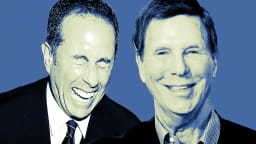
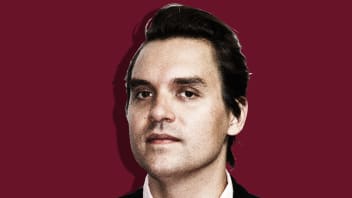
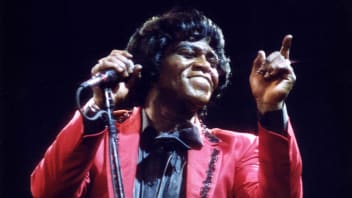

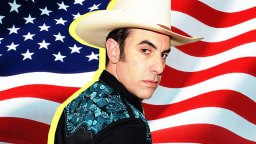
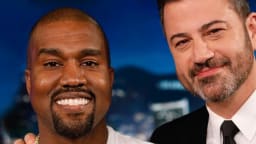
No comments:
Post a Comment